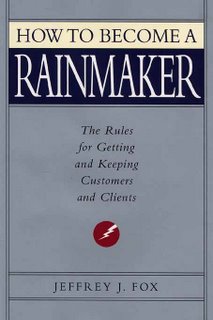 YOU know how special you are. YOU know that you outshine the competition. The question is: does your potential client?
YOU know how special you are. YOU know that you outshine the competition. The question is: does your potential client?Helping clients understand the value you provide to them is essential in prospecting and keeping business. Let’s face it: consumers have plenty of YOU to choose from, and national research shows that they see very little difference among you. It is therefore up to you to be able to articulate and to demonstrate what it is that makes you their best choice; what it is that makes you unique and valuable.
First, know what clients want and know that those wants may change. You must identify what consumers expect and need.
NAR data from 2008 states that today’s buyers and sellers are selecting agents for a number of select reasons:
• They want a quick response.
• They want expert advice and guidance.
• They want a skilled negotiator.
• They want accurate market knowledge.
• They want a “track record.” (Reputation matters.)
• They want someone they can trust.
If you are able to show clients that you have expertise and skill in all of these areas, you have begun to prove your value.
In addition, a good buyer’s interview will help you determine your clients’ individual wants and needs. Listening is a key component in this step. If you can then paraphrase back to the clients what they have described, they become convinced that you know and understand them, and what’s more: that you are willing to accept their “requirements” and work accordingly on their behalf. (Also, be prepared to be flexible because those “must haves” might suddenly shift to “would be nice to haves,” while entirely new criteria surface as primary.)
Second, remember: it’s not about you. It’s about them.
A useful motto here for the real estate professional is: “check your values at the door.” You may take their criteria and show the clients the best of the best in that price range, only to find out that they are solely comfortable with homes more modest or unassuming. You may be appalled to discover that their top choice is across from an apartment complex or major highway, but if you remain non-judgmental and validate their reasons, you have proven your value as a listener to their needs. On the other hand, if you try to argue them out of their first choice or convince them they are wrong, (because obviously you are the expert!) then you risk alienating the clients you are supposed to serve, if not lose them all together.
Finally, know and verbalize exactly why clients should work with you.
And P.S. the answer isn’t “because I give good service.” You’d better give good service: that’s a bottom-line expectation of all consumers! What do you do above-and-beyond service?
Jeffrey J. Fox, in HOW TO BECOME A RAINMAKER, reminds us that we should always be able to answer the question, “Why should this customer do business with us?” Make it your mission to be able to answer that question for your business–the same way every time. And make the answer true.
That is a value proposition that sells.
